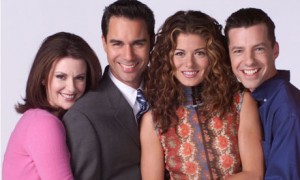A sports radio talk show host, considering on-air why a certain former basketball star and coach has not been considered for coaching vacancies in the NBA of late, suggested that the candidate’s “very religious” nature could be a reason he has been passed over. Not that there is anything wrong with being religious, he and his co-host quickly added, but being such could make the potential coach “hard to deal with.”
I suspect no ill or anti-religious intent on the part of the host; speaking extemporaneously, he was likely not divulging a carefully reasoned opinion, but an absorbed, unconsidered prejudice. This makes his comment all the more striking: Where did this idea come from? And why would he associate religiosity with being “hard to deal with” – that is, being inflexible, stubborn, difficult, or unfriendly?
In the midst of a culture war in which perception seems to count more than reality, enemies of religion have succeeded in using media, entertainment, schools, and laws to create the association that our radio host made. “Religious extremism,” for one example, is now a part of popular parlance, its meaning having been extended from denoting violence committed under the guise of religion to beliefs that conflict with the values of secular elites.
Hollywood routinely portrays Christian characters as fools or deviants. In the public square, assertions based on faith or the Bible are often met with skepticism, hostility, or ridicule. Conversations about the benefits of faith are often met with reminders about the Crusades, the Inquisition, or wars of religion.
Christianity is the greatest force for good that the world has ever seen. Period. Nothing else even comes close. Charitable institutions, education, care for the vulnerable and marginalized, art, architecture, music, and philosophy all have been sustained and advanced by Christians seeking the glory of God and the benefit of human beings. The values and ideals that are most dear to the modern world today – freedom, justice, equality – all stem from Christian philosophical reflection and Christian practice.
So what is it about religion – especially Christianity, against which so much ire has been aimed in recent decades – that has enabled it to be cast so negatively? Along with the commandment of charity, Christianity includes a strict code of moral prohibitions that run counter to the prevailing secular ethos of radical individual autonomy – the perceived “right to define one’s own concept of existence, of meaning, of the universe, and of the mystery of human life,” right down to doing as one pleases in private and to defining one’s own gender or race.
As popular opinion seems to shift more towards libertinism, it is no secret that a fervent Christianity remains the last bulwark against complete moral collapse. And those who desire to hasten this collapse are doing their best to sully Christianity at every turn.
In recent years, as the focus of the culture wars has moved from abortion to marriage, ad hominem rhetoric has tarred Christians as “intolerant” – we are “haters” and “phobes” – for not yielding to the demands of cultural license. Moral conviction has been intentionally mislabeled as being hateful of individual persons. Judging actions has been intentionally conflated with judging people. Christians defending traditional morality have been steadily driven back into a position from which it is extremely difficult to gain forward traction in a sound-bite culture.
This brings us back to our sports radio host’s statement. His idea has become part of the mainstream media’s narrative as it pushes the culture war on a brutal offensive. Numerous films, television shows, protests, books, and music videos seen by over 100 million people have contributed, incrementally and in different ways, to portraying religion, Christianity in particular – a religion based on charity toward God and neighbor – as an anachronistic and oppressive obstacle to personal fulfillment.
Especially among young people, this prejudice has become prevalent. It is no wonder, then, that a religious person would be stereotyped as “hard to deal with”- because when a person holds a creed, he or she is assumed to be an obstacle to another’s desire, whether in private action or on a basketball court.
Given this situation, how can Christians counter this prejudice that has formed against them? If perception trumps reality, then the old exhortation that “they will know we are Christians by our love” no longer has the same appeal: religion’s enemies have redefined love as allowing a person to do as he or she (or. . .?) pleases. Yet abandoning traditional Christian morality can’t work – mainline Protestantism has already proved all too well that belief in Christ cannot be divorced from morality.
For two millennia Christianity has succeeded in making converts of people who believed in all sorts of different gods. Converting those who believe only in themselves seems more daunting still. In the court of public appeal, feelings and emotions win over faith and moral law.
Yet there is one historical precedent, though not a perfect parallel, for hope: the radical Jacobins of the French Revolution, in their purge of all things good, were eventually overthrown by those unwilling to surrender to complete chaos. Christians can only pray that those who have been led to suspect religion will realize that the real suspects should be those who have put religion on trial.

















